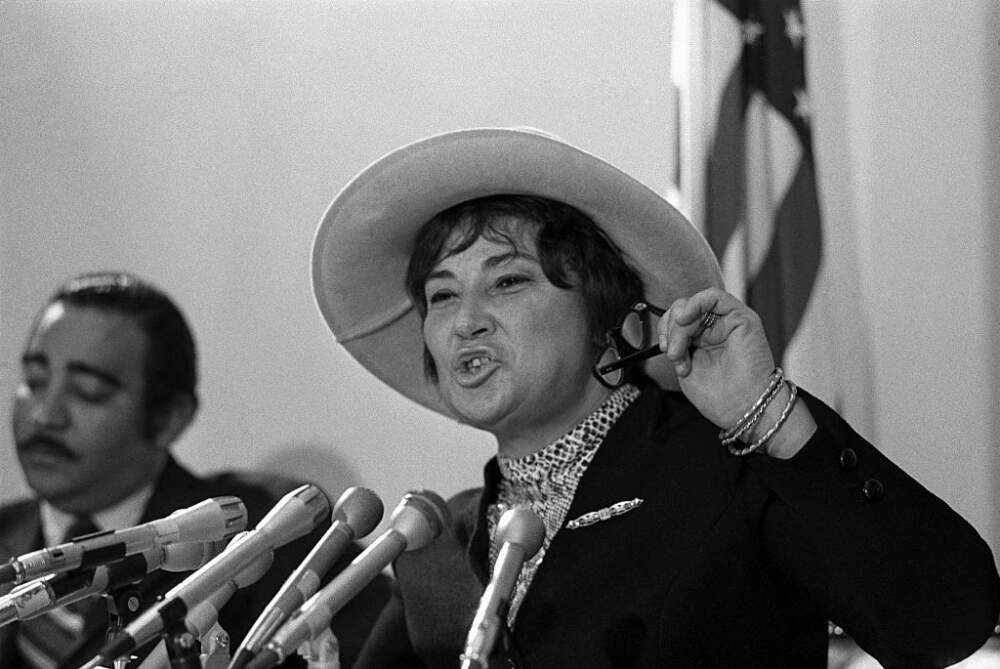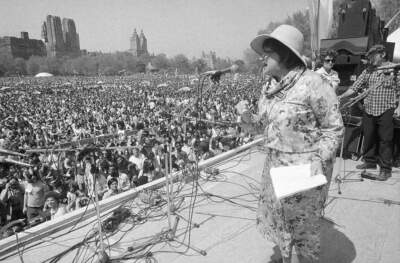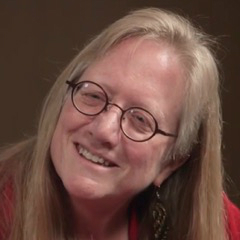Advertisement
Commentary
I worked for feminist icon Bella Abzug. Now I tell my students: ‘If you like RBG, you’ll love Bella’

Next month, the PBS series "American Masters" will air a new episode about a one-time national icon who would likely have rejected the label “master”: Bella Abzug, the famed feminist and progressive activist, fierce Congressmember and force of nature. The episode, “Bella! This Woman’s Place is in the House,” takes its name from Bella’s slogan for her first Congressional campaign, “A woman’s place is in the house — the House of Representatives.”
This attention to Bella, who became a household first name in the 1970s, is long overdue. She was one of the media-spotlit “big three” of second wave feminism, along with Gloria Steinem and Betty Friedan. Yet she is now distinctly less renowned than they, or her close Congressional colleague Shirley Chisholm, or Supreme Court Justice Ruth Bader Ginsburg.
This astonishes and saddens me, as someone who had the (mostly) great pleasure of working with Bella. I tell my students, “If you like RBG, you’ll love Bella,” who was to flamboyant hats what RBG was to lace collars. And love her they do. She could never have planked like RBG, but she worked until her death in 1998, at 77, after five decades of unmatched global activism for progressive causes.
RBG was kinder and genteeler, but Bella exuded a combination of passion and charm that few could resist. As a 30-something who had become deeply cynical about politicians, I had to be dragged to hear her speak in 1994 — only to find myself spellbound by her exhortations to activism. Though happily employed, I approached her afterward and blurted, “I wanna work for you, Bella!”
She commanded me to be in her office, 3,000 miles away, in 36 hours. Like many before me, I went — and was immediately put to work, staffing the global women’s cancer prevention campaign that Bella initiated after surviving the disease herself.
Bella first came to national attention in 1971, when she was elected to the first of three terms representing her native New York City in Congress, which then had just 13 women members. (There are 125 today, thanks in part to Bella’s co-founding of the National Women’s Political Caucus.) But she earned a reputation as a keen strategist and rousing, mediagenic speaker long before she reached Washington, D.C.
The daughter of Russian Jewish immigrants, Bella spent 25 years as a formidable labor, tenant and civil rights attorney. Braving death threats, she energetically defended Willie McGee, a Black Mississippian ultimately executed in 1951 for allegedly raping a white woman, in a notorious case viewed, then and now, as a travesty of justice. And she co-founded and led Women Strike for Peace, the group credited with President John Kennedy’s signing of the Limited Nuclear Test Ban Treaty in 1963.
Advertisement
Equally at home in courtrooms and street protests, “Battling Bella” took the Capitol by storm. She shrewdly and full-throatedly helped win passage of the Equal Rights Amendment, equal credit for women, and the Freedom of Information Act. She was likewise instrumental in the first Congressional efforts — unsuccessful, but historic and influential — to ban discrimination against lesbians and gay men, impeach President Richard Nixon and bring an immediate end to the Vietnam War.

For this and much else, a 1977 Gallup poll named Bella one of the 20 most influential women in the world. In fact, the PBS documentary features references to her in the hit TV shows of the time, including “Mary Tyler Moore” and “All in the Family,” where proto-Trumper Archie Bunker called her “Mr. Abzug.”
Then, at the height of her fame, Bella relinquished her House seat to run for the U.S. Senate — and lost by less than 1%. Undaunted, she went on to co-found an international women’s organization that made her as highly regarded at the United Nations as she was in Congress. Her rich baritone was heard worldwide, decrying injustice, mobilizing resources for women in dozens of countries, and intoning a credo borrowed from Black feminist Flo Kennedy: “Don’t agonize — organize!”
The PBS documentary rightly highlights these and other public accomplishments that are surprisingly little known today. But it does not shy away from the perfectionistic workaholism that made Bella as hard on her staff as she was on herself.
When I once tried to nuance the sweeping claims she was making on a key conference call, she yelled, “Get off the f---ing phone!” I stalked out of her office, vowing never to return. But I did just that, after receiving a phone message from her.
“Come back, Shane,” Bella joked, invoking the last line of the classic western “Shane.” “I was an intellectual once, but I got over it.” And I got over her outburst: she was, as she often described herself, one of a kind.
Equally at home in courtrooms and street protests, “Battling Bella” took the Capitol by storm.
Bella was unabashedly proud of her connections with notables, including Hillary Rodham Clinton and Barbra Streisand, who describe in the documentary what she meant to them. And she was delighted when I gave her a personality-typing book that grouped her with President Lyndon Johnson and General Charles DeGaulle. Legendary economist John Kenneth Galbraith, she reminded me, had once written, “In a perfectly just republic, Bella Abzug would be president.”
But no one meant more to her than the young women — and men — who invariably gathered around her after the fiery speeches she delivered, even in her last years. Rising from a wheelchair, she summoned oratorical energy rarely heard today, calling the audience to her cause. Moved and energized, many of her new admirers asked, “How can I be great like you, Bella?”
“Don’t be great like me,” she always answered. “Be great like you.” The PBS documentary may well inspire viewers to try to be both.

